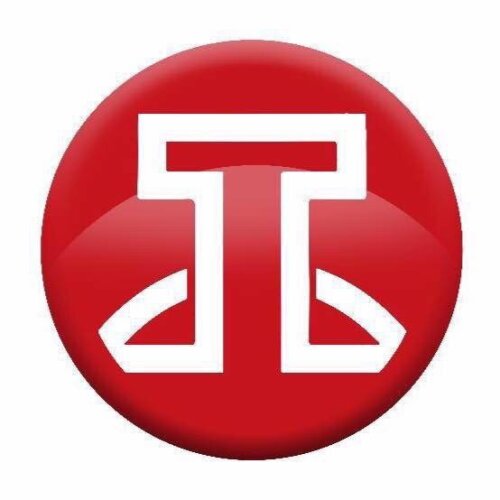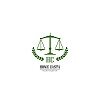Best Sustainable Finance Lawyers in Haiphong
Share your needs with us, get contacted by law firms.
Free. Takes 2 min.
List of the best lawyers in Haiphong, Vietnam
About Sustainable Finance Law in Haiphong, Vietnam
Sustainable finance in Haiphong, Vietnam, refers to financial activities that take into account environmental, social, and governance (ESG) criteria, aiming to facilitate sustainable economic growth while addressing environmental and social challenges. As one of Vietnam's prominent port cities and industrial hubs, Haiphong has seen a significant increase in attention to sustainable development policies. Laws and regulations now encourage the integration of green finance principles across banking, investment, and corporate sectors. This means businesses and individuals involved in finance must comply with government directives on environmental protection, social responsibility, and sustainable investment practices.
Why You May Need a Lawyer
Navigating sustainable finance regulations in Haiphong can be complex. You might require legal help in situations such as:
- Establishing or investing in green finance initiatives, like renewable energy projects or eco-friendly startups
- Ensuring that your business operations comply with new environmental and social governance requirements
- Managing documentation and reporting for green bonds, loans, or sustainable investment products
- Responding to regulatory investigations or audits around ESG compliance
- Handling disputes related to non-compliance or misrepresentation of sustainability claims
- Drafting and reviewing contracts with ESG-related obligations or risk assessments
A lawyer specializing in sustainable finance can help you understand the changing landscape, protect your interests, and ensure legal compliance.
Local Laws Overview
Haiphong adheres to national laws and international commitments on sustainable finance, integrated at the city level through various programs and policies. Key aspects include:
- Environmental Protection Law: Businesses must assess environmental impacts and take measures to mitigate harm as part of financing and investment activities.
- Law on Investment and Decrees on Green Finance: Investors in green sectors like renewable energy, energy efficiency, and pollution control can access preferential policies, including tax incentives and easier access to credit.
- Disclosure and Reporting Obligations: Companies publicly listed in Haiphong are increasingly required to report on ESG criteria in line with government directives and guidance from the State Securities Commission of Vietnam.
- Green Banking Initiatives: Local financial institutions are encouraged to provide green loans and scrutinize lending against sustainability benchmarks.
- International Treaties: Vietnam’s commitments under global agreements, such as the Paris Agreement, influence local implementation and financing of climate-resilient projects.
Compliance with these laws is essential for businesses and investors operating in Haiphong’s rapidly evolving sustainable finance sector.
Frequently Asked Questions
What is considered a sustainable finance product in Haiphong?
A sustainable finance product could be any loan, bond, investment fund, or financial instrument that channels capital into projects with positive environmental or social outcomes, such as renewable energy, waste treatment, or affordable housing.
Who regulates sustainable finance in Haiphong?
Regulation is primarily handled by the State Bank of Vietnam, the Ministry of Natural Resources and Environment, and local government departments. In the case of capital markets, the State Securities Commission also plays a key role.
What are green bonds and how are they used in Haiphong?
Green bonds are debt securities issued to finance environmentally sustainable projects. In Haiphong, these may fund things like public transportation upgrades, water treatment facilities, or clean energy initiatives.
Are there financial incentives for businesses implementing sustainable projects?
Yes, businesses can access tax breaks, preferential loans, and grants when investing in sectors such as renewable energy, waste management, or green building practices.
What are the main reporting criteria for ESG compliance?
Reporting typically covers energy use, carbon emissions, water management, labor practices, anti-corruption measures, and executive compensation. Disclosure requirements may depend on the company’s sector and size.
Is it mandatory for companies to have an ESG policy?
While not all companies are legally required, publicly listed companies and those in regulated industries are increasingly expected to adopt and disclose ESG policies.
What penalties can result from non-compliance?
Penalties can include fines, suspension of projects, loss of financing incentives, and reputational damage. In severe cases, criminal liability may arise for environmental harm or fraudulent sustainability claims.
Can foreign investors participate in sustainable finance in Haiphong?
Yes, both domestic and foreign investors are encouraged to invest in sustainable sectors, often with similar or additional incentives.
What should be included in a sustainable finance contract?
Contracts should clearly define sustainability goals, compliance mechanisms, reporting obligations, and penalties for non-performance. It is advisable to involve legal counsel to ensure clarity and enforceability.
How can I verify that a project qualifies as sustainable?
Verification can be done by consulting government guidelines, working with accredited certifiers, or seeking legal advice to review project documentation against applicable standards.
Additional Resources
If you need more information or assistance, you may consider contacting or visiting:
- State Bank of Vietnam - Haiphong Branch: Oversees green banking and lending regulations
- Department of Natural Resources and Environment of Haiphong: Provides guidance on environmental compliance
- Vietnam Green Building Council: Offers information on green construction standards
- Vietnam Chamber of Commerce and Industry (VCCI): Supports businesses in navigating ESG implementation
- Legal aid centers operated by the Haiphong Bar Association: For pro bono advice or consultation
Next Steps
If you or your organization need legal assistance in sustainable finance:
- Identify your specific needs, such as contract drafting, compliance review, or dispute resolution.
- Prepare relevant documents, including business licenses, project proposals, or prior ESG reports.
- Contact a reputable law firm or legal practitioner in Haiphong with experience in sustainable finance.
- Schedule an initial consultation to discuss your case and possible legal strategies.
- Stay informed about policy updates by signing up for newsletters from government agencies or business associations.
Taking these steps will help ensure your activities in sustainable finance are compliant, effective, and aligned with Vietnam’s long-term economic and environmental goals.
Lawzana helps you find the best lawyers and law firms in Haiphong through a curated and pre-screened list of qualified legal professionals. Our platform offers rankings and detailed profiles of attorneys and law firms, allowing you to compare based on practice areas, including Sustainable Finance, experience, and client feedback.
Each profile includes a description of the firm's areas of practice, client reviews, team members and partners, year of establishment, spoken languages, office locations, contact information, social media presence, and any published articles or resources. Most firms on our platform speak English and are experienced in both local and international legal matters.
Get a quote from top-rated law firms in Haiphong, Vietnam — quickly, securely, and without unnecessary hassle.
Disclaimer:
The information provided on this page is for general informational purposes only and does not constitute legal advice. While we strive to ensure the accuracy and relevance of the content, legal information may change over time, and interpretations of the law can vary. You should always consult with a qualified legal professional for advice specific to your situation.
We disclaim all liability for actions taken or not taken based on the content of this page. If you believe any information is incorrect or outdated, please contact us, and we will review and update it where appropriate.












